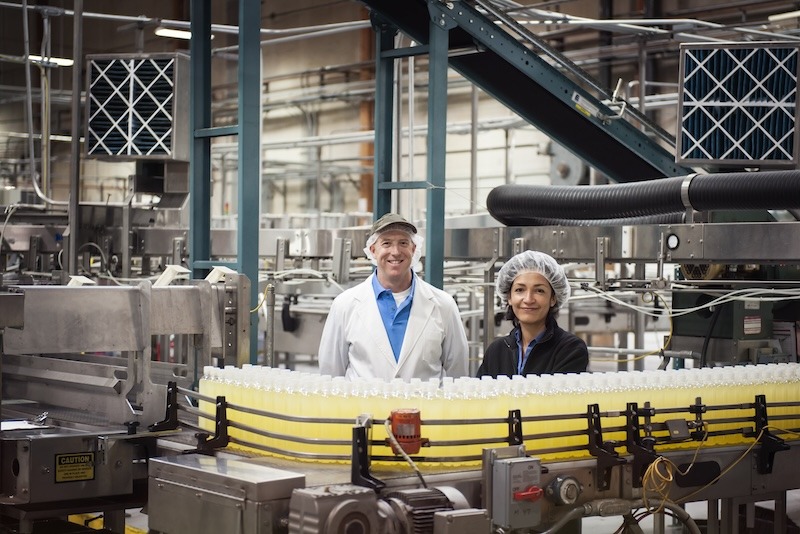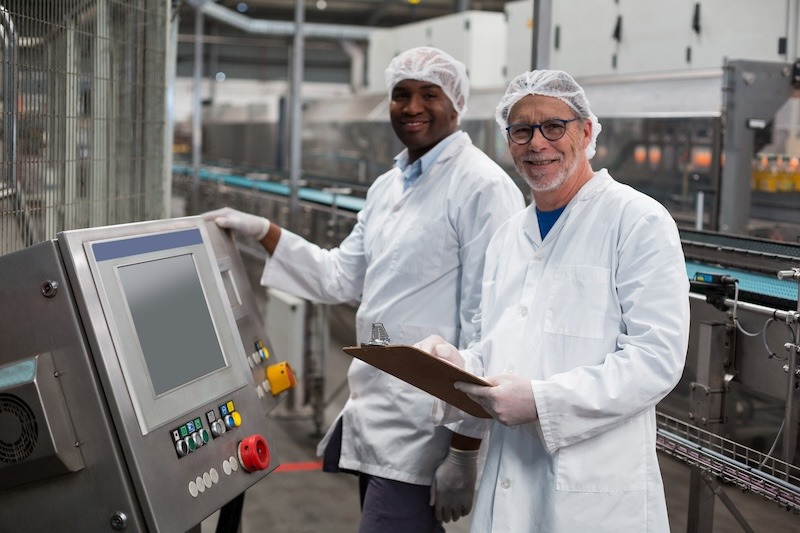Our Tailored Approach to Food Manufacturing Recruitment
At JSK Recruiting, we believe that in order to find the best candidates for our clients, we need to understand the open role, your business, and the applicants themselves. Rather than send you resumes for candidates who are only loosely qualified for the position, our food manufacturing recruiters use an established process to vet candidates and hand-select the best ones.
First, we work with your business to define your brand mission. By clearly defining your company mission, we give the best candidates a chance to discover your position themselves. We want candidates to be excited to work for you and presenting a strong brand picture is the first step to making that happen.
Once candidates begin to apply for the open role, we do more than just review their resumes. Instead, we vet each applicant on their skills, experience, and personality, looking for people who would fit best with your company’s culture. This not only allows us to determine if a candidate’s personality is a match for your business, but it also enables us to grow our pool of job-seeking candidates. This means that when you have a new position open at your company, we likely already have a strong candidate match in mind.
By using this tailored method, our food manufacturing recruitment agency is then able to select two to five applicants who would be a great fit for your open job. By the time we send these to you, we have already narrowed the applicant pool, allowing you to invite only the top people in for an interview.

Our Guarantee
We offer a guarantee for every placement we make. Contracts vary depending on the type of position, the timeline, and other factors. Our recruiters will get to know you and your needs first, so we know exactly what you are looking for in a hire. Since we have been in the supply chain and manufacturing recruiting field since 2005, we have industry-specific knowledge that makes communicating with us a breeze.
We Offer the Best Chicago Recruiting Services
Why Choose JSK Recruiting for Your Food Industry Recruitment Needs
At JSK Recruiting, our food manufacturing recruiters take over the entire recruitment process, from organizing resumes, screening candidates, and ultimately extending a job offer. By understanding the needs of both your company and the candidates, our food industry recruiters not only speed up the recruitment process, but also find you applicant matches who will want to stay long-term.
In-Depth Candidate Screening
At JSK Recruiting, we use an in-depth recruitment screening process that allows us to review an applicant’s fit both for the role and for your company as a whole. This reduces the risk of hiring mistakes and cuts back on turnover. Similarly, we take recruiting to the next level by taking the time to understand the wants, needs, and personality of each potential candidate, ensuring we deliver top talent for your business.
Local Connections
Our food industry recruiters do not rely on large candidate databases where most of the applicants are out of area or irrelevant. Instead, JSK Recruiting has local connections in Aurora, St. Charles, Frankfort, Naperville, and Oak Brook, and we use our community relationships to recruit the best matches for our clients.
Niche Industry Knowledge
There are many good reasons to use local manufacturing recruiters near you, but not all agencies use the best practices. In order to succeed, it’s important to choose a firm that understands your profession and industry.
JSK Recruiting is a food manufacturing recruitment agency that specializes in Addison and Chicago companies and candidates. By focusing on this niche market, we have been able to develop an in-depth understanding of the food manufacturing industry, helping us better screen candidates and match them with the right openings.
Fast Hires
According to one hiring study, it takes an average of 44 days to bring on a new staff member after a job has been posted. Unfortunately, most of our clients cannot afford to wait that long to fill an open position. When you work with our food manufacturing recruiters, we take over the entire hiring process, using our network to find qualified applicants at faster-than-average rates.
High Acceptance and Retention Rates
According to recent data, the average contract tenure in the US is a mere 10 weeks, but that kind of turnover can be costly. At JSK Recruiting, we have one of the highest acceptance rates in the industry, and some of our initial placements have stayed at their companies for more than 15 years. When you work with us, you can be sure that we find the right fit, every time.
24/7 Accessibility
Our recruiters do not operate on a traditional nine-to-five workday model. Instead, we are proud to offer round-the-clock accessibility, and we can make ourselves available for our clients when they need hires the most.
About JSK Recruiting
JSK Recruiting has been working in the supply chain, distribution, and manufacturing field for more than 20 years. Jeff Katz founded JSK Recruiting with the goal of improving the hiring experience for employers and job seekers in this sector.
Get Chicago Recruiting Services from JSK Recruiting
JSK Recruiting is the top recruiting firms in Chicago. Whether you are a Chicago manufacturing or supply chain company looking for committed professionals to fill open positions or you are looking for a manufacturing job in Chicago, we would love to work with you. If you are looking for recruiting and or hiring services in Chicago, come to us. For Chicago manufacturing recruiting services, call or text JSK Recruiting today at (847) 696-7377 or email [email protected].
How Our Food Industry Recruiters Improve Hiring
The JSK Recruiting method follows the three C’s of food manufacturing recruitment to match businesses with their ideal candidates. These C’s stand for clarity, communication, and closure.
Clarity
Our food manufacturing recruiters do not merely glance over resumes. Instead, our aim is to develop true partnerships between candidates and the organizations they join. To do this, we start by making sure every applicant clearly understands the expectations and duties of the open role. This creates transparency for applicants, which we believe is essential for reducing turnover and improving job satisfaction. It allows candidates to evaluate their own fit for the position, ensuring that applicants are eager and ready to take on the job. Our food manufacturing recruiter’s commitment to clarity allows us to more effectively screen candidates from the very start.
Communication
At JSK Recruiting, we believe continuous communication is necessary to establish trust between our agency and our clients. Our food industry recruiters keep clients updated on their progress as the hiring process moves forward, offering feedback as often as needed. For clients who prefer fewer emails in their inbox, we can customize our communications to suit their needs.
Closure
Any business that has tried to recruit and hire candidates on their own knows the process can be hectic, and it’s easy for important details to slip. When you work with JSK Recruiting, our food industry recruiters handle the entire hiring process from beginning to end. This includes discussing job offers with candidates and communicating with applicants who will not be moving on to further rounds.

WE'D LOVE TO WORK WITH YOU!
Reach out to us today to learn more about what makes us different.

